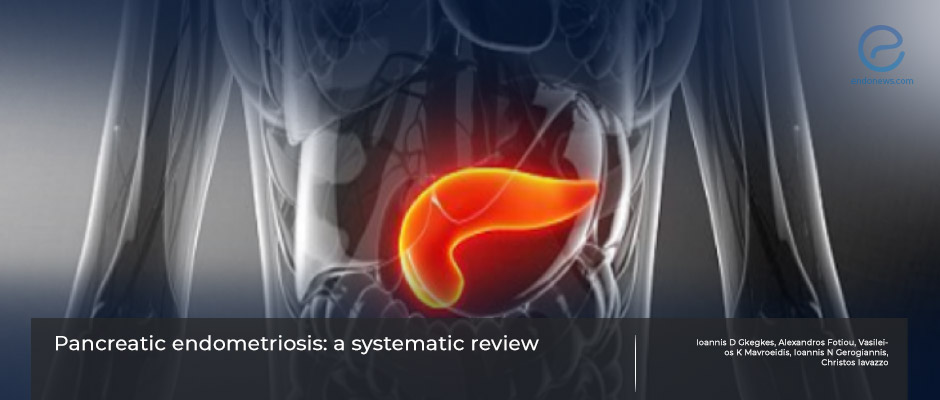A rare and challenging site for endometriosis: Pancreas
Jun 6, 2023
Study evaluates the characteristics of pancreatic endometriosis cases
Key Points
Highlight
- Pancreatic endometriosis is a rare and challenging condition that can mimic cysts and neoplasms.
- Raising awareness among surgeons is important for considering pancreatic endometriosis as a differential diagnosis.
Importance
- Pancreatic endometriosis presents with various symptoms, ranging from emergency presentations to asymptomatic cysts.
- Establishing a definite diagnosis without surgery and histopathology is difficult.
What's done here
- A systematic literature review on pancreatic endometriosis was conducted, following PRISMA guidelines.
- Eighteen pancreatic endometriosis patients from 17 case reports were included in the review.
Key results
- The mean age was 39.3 years. Epigastric, acute left upper quadrant or back pain, and gastrointestinal symptoms were frequent.
- Computed tomography was the most common imaging technique used for preoperative evaluation.
- Surgical treatment, mainly distal pancreatectomy with or without splenectomy, was performed in the majority of cases.
- Postoperative hormonal therapy was administered in only one patient.
- Recurrence of pancreatic endometriosis was reported in one case following needle aspiration.
Lay Summary
Pancreas presents as a rare site for extragenital endometriosis. Gkegkes et al. performed a systematic review of the literature on pancreatic endometriosis. The article was published in the Jan-Feb 2023 issue of the journal Annals of Gastroenterology.
A comprehensive search of PubMed and Scopus databases in accordance with the PRISMA guidelines was conducted. There were 18 pancreatic endometriosis patients from 17 case reports that met the inclusion criteria with a mean age of 39.3.
Studies revealed that pancreatic endometriosis can manifest in various ways, ranging from emergency presentations to asymptomatic cysts. Nearly half of the patients included in the review presented as emergencies. Menstrual irregularity and a history of endometriosis were not common. The most frequent symptoms were epigastric pain, acute left upper quadrant pain, back pain, and gastrointestinal symptoms. Imaging techniques such as computed tomography, magnetic resonance imaging, ultrasound, and endoscopic ultrasound were used for preoperative evaluation. Surgical treatment was performed in the majority of cases, mainly due to the difficulty of establishing a definite diagnosis without surgery. The most common surgical procedure was distal pancreatectomy with or without splenectomy. Postoperative hormonal therapy was administered in only one patient. Recurrence of pancreatic endometriosis was reported in one case following needle aspiration.
The authors emphasize the challenges in diagnosing pancreatic endometriosis, as it can mimic neoplastic cysts and tumors, including those with malignant potential. The differential diagnosis includes various benign and malignant cystic lesions of the pancreas, making it difficult to differentiate pancreatic endometriosis from other conditions. There is no established laboratory or radiographic investigation for a definitive diagnosis, and a histological examination of the resected specimen is necessary.
Following a specific algorithm for diagnosing pancreatic endometriosis, including imaging tests and fluid sampling for cytology and biochemistry is suggested. The authors also state that raising awareness among surgeons, especially in women of reproductive age with a history of endometriosis or prior lower abdominal surgeries, to consider pancreatic endometriosis as a differential diagnosis is important.
Research Source: https://pubmed.ncbi.nlm.nih.gov/36593814/
endometriosis pancreas pancreatic endometriosis pancreatic cyst

